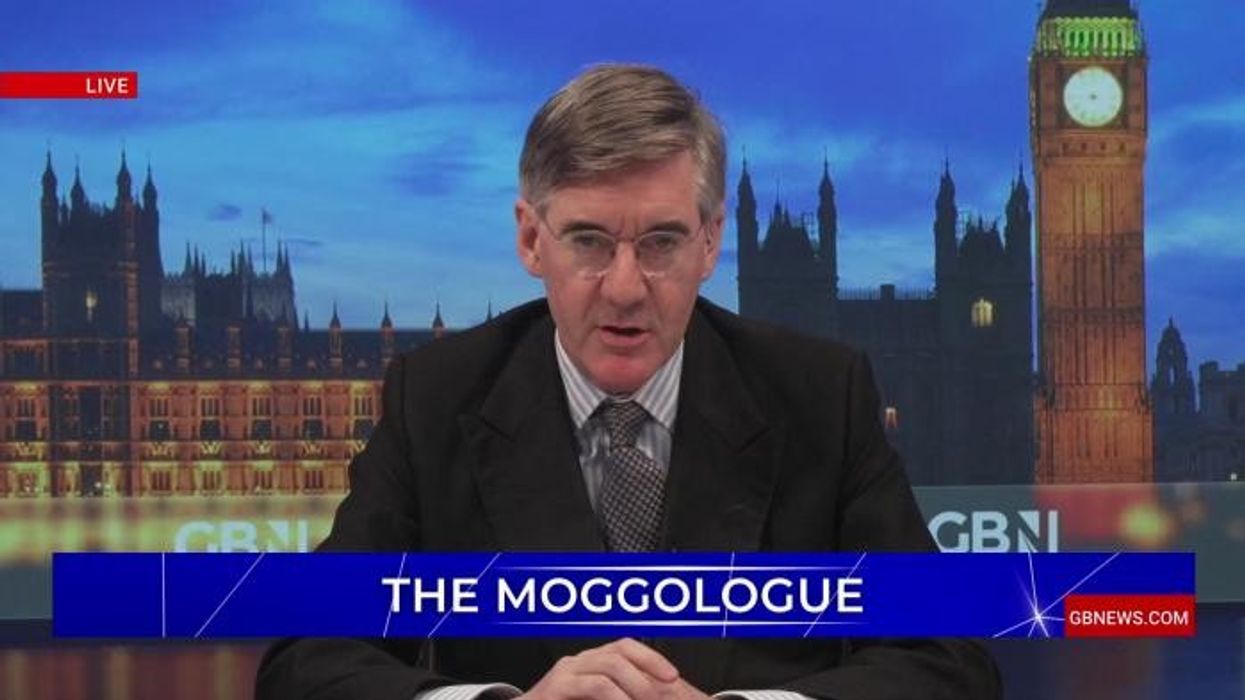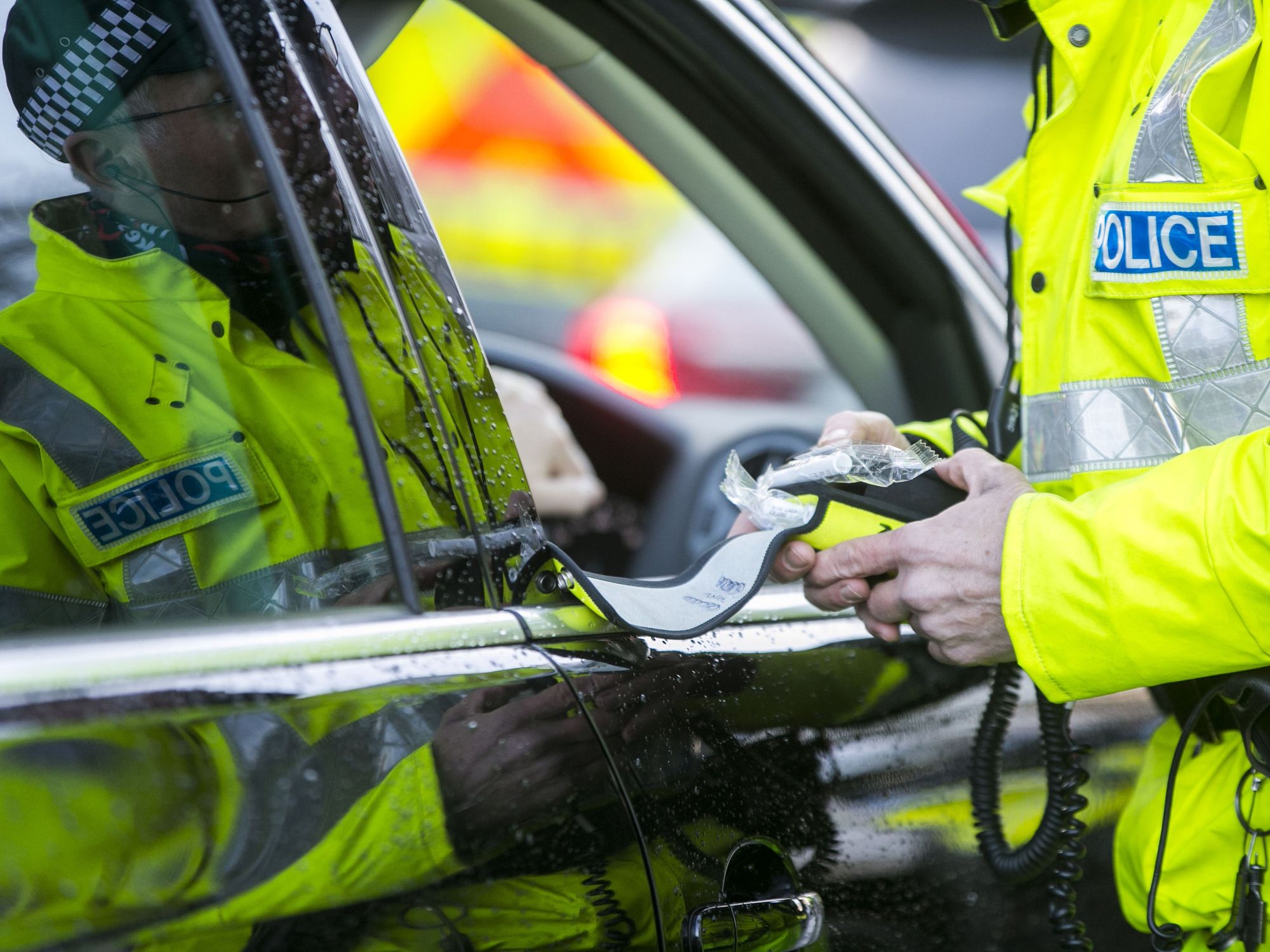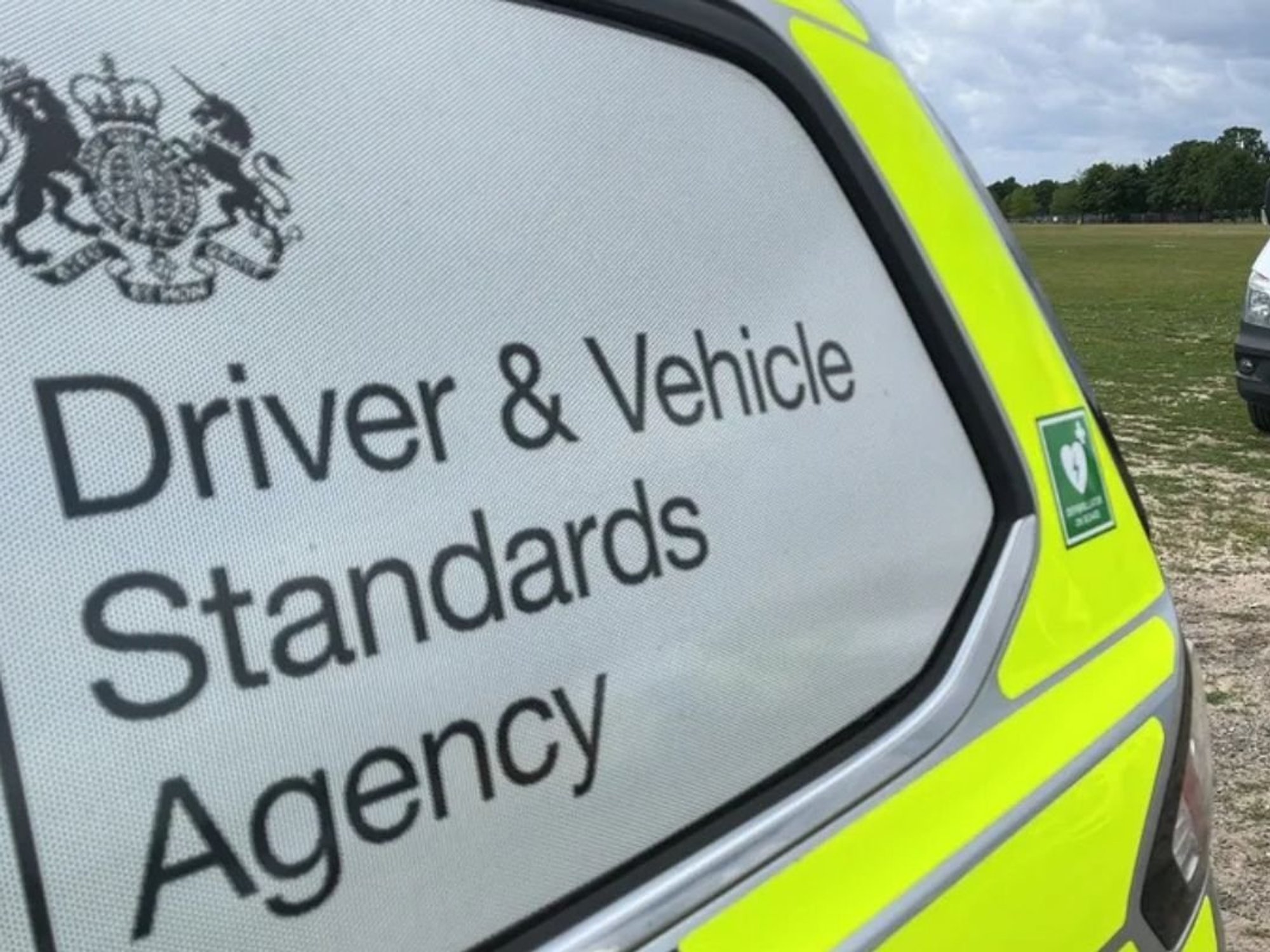REVEALED: The five ways Labour is smuggling Britain back into the EU as PM accused of 'Brexit betrayal'
Starmer has vowed to bring Britain closer ties with the EU
Don't Miss
Most Read
Latest
Five ways Labour is smuggling Britain back into the EU have been revealed, as Sir Keir Starmer has been accused of a "Brexit betrayal".
In about two weeks, Starmer will welcome EU leaders to the UK, where they will negotiate deals on defence, food and net zero.
The Government is urgently pursuing new agreements with the EU to accelerate rearmament and revive the UK’s stagnant economy.
Shadow Foreign Secretary and Tory MP Dame Priti Patel warned "Labour's Brexit betrayal has begun".
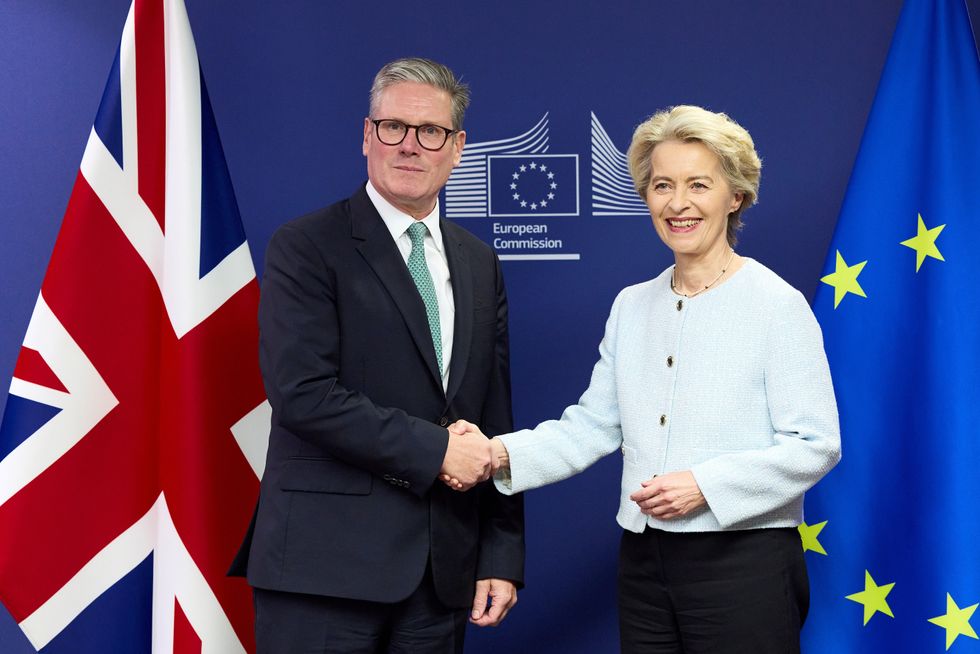
In about two weeks, Starmer will welcome EU leaders to the UK, where they will negotiate deals on defence, food and net zero
| PAShe added: "They spent every day in opposition blocking Brexit. Starmer and his Government are sabotaging our Brexit freedoms and surrendering our sovereignty.
"They want to impose EU laws on us through the back door, make Britain a rule-taker and subject us to ECJ decisions."
Reform UK’s strong performance in the local elections - capped by their win in the Runcorn & Helsby by-election - signals growing public resistance to any attempts at quietly reversing Brexit through backroom deals.
MORE LIKE THIS:
- REVEALED: Keir Starmer's EU reset torpedoed as majority back hard Brexit pledge ahead of crunch talks with EU
- Brexit row erupts as Jacob Rees-Mogg gives sarcastic response to Labour MP’s Nigel Farage claim
- EXCLUSIVE: Keir Starmer sparks fears of Brexit betrayal as deadline on EU deal looms: 'Do NOT sell us out'
Youth Mobility
The Labour Government’s talks with the EU over a new youth mobility scheme have sparked accusations of backtracking on Brexit.
Chancellor Rachel Reeves recently confirmed plans to let young people from the UK and EU work and travel overseas, a move critics see as reintroducing free movement by stealth.
The EU has made youth mobility a key demand in negotiations, with some member states threatening to block progress without it.
Labour is now considering a capped, reciprocal scheme similar to the UK-Australia agreement, allowing limited two-year stays for work.
Supporters argue the scheme could ease labour shortages and boost tax revenue.
Critics, however, warn it risks undermining Brexit, despite assurances that it’s a controlled visa programme, not a return to open borders.

Rachel Reeves recently confirmed plans to let young people from the UK and EU work and travel overseas
|GETTY
EU-UK defence pact
The Government is under pressure amid reports it may offer the EU greater access to British fishing waters in return for participation in a new €150billion (£127billion) EU defence fund.
An investigation by GB News and Facts4EU found EU vessels already outnumber British boats in UK waters and are significantly larger - fueling anger among Brexit supporters who feel the Government is preparing to compromise British sovereignty once again.
Talks on a UK-EU defence pact, expected to be unveiled at a May 19 summit, are modelled on Norway’s arrangement and aim to boost security cooperation, intelligence-sharing, and support for Ukraine.
However, French negotiators have tied the renewal of fishing rights, due to expire in 2026, to this wider deal.
Critics argue this risks turning defence collaboration into a vehicle for slowly reversing Brexit.
Access to the defence fund could benefit major British firms like BAE Systems, but Brussels insists the UK would have to pay for entry, reviving memories of EU budget contributions.
Sir Jacob Rees-Mogg warned against "betraying our fishermen again," while others see the deal as a "Trojan horse" for deeper EU alignment, undermining Brexit gains under the guise of security cooperation.
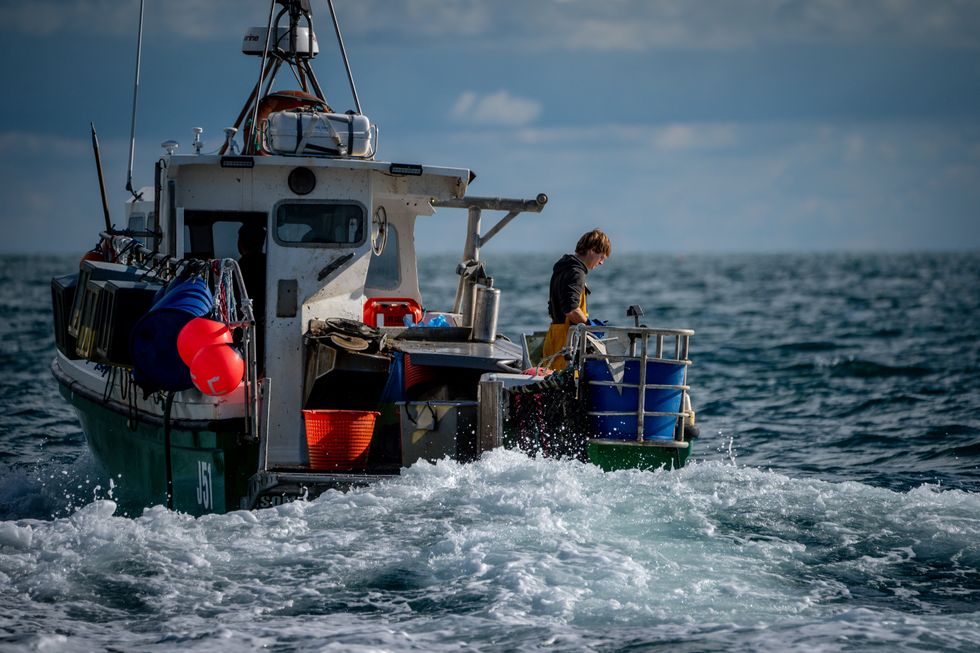
French negotiators have tied the renewal of fishing rights- due to expire in 2026- to this wider deal
| PAFood Standards
British negotiators are reportedly nearing a deal that would see the UK align with the EU’s food and veterinary standards.
The plan, known as "dynamic alignment," would mean the UK keeping pace with changes in EU regulations in these sectors- a move long touted as a way to ease post-Brexit trade tensions, especially those surrounding the Northern Ireland Protocol.
However, such an agreement would likely place some aspects of UK food regulation under the jurisdiction of the European Court of Justice- a red line for many Brexit supporters.
Critics also warn that dynamic alignment could effectively block American agricultural imports, potentially clashing with terms of a proposed UK-US trade agreement, which US Vice President JD Vance has indicated remains a possibility.
Net zero
Britain and the EU are in talks to relink their carbon markets, signalling Starmer’s push for a deeper post-Brexit reset beyond trade.
Both sides use emissions trading schemes (ETS) to cap carbon output and allow companies to trade allowances.
The UK set up its own ETS after leaving the EU's system in 2020, but UK carbon prices are currently nearly half those in the EU.
This price gap poses a challenge ahead of the EU’s upcoming Carbon Border Adjustment Mechanism (CBAM), which will tax high-emission imports like steel and aluminium.
The UK plans to introduce a similar measure in 2027. Aligning carbon markets could shield British exporters from these levies and boost Treasury revenues.
However, critics warn that raising UK carbon prices to match the EU could hurt domestic industry and spark retaliation from global partners.
The US and India have already voiced opposition to carbon border taxes. At home, business leaders like Sir Jim Ratcliffe say green levies are already driving up energy costs and threatening British manufacturing.
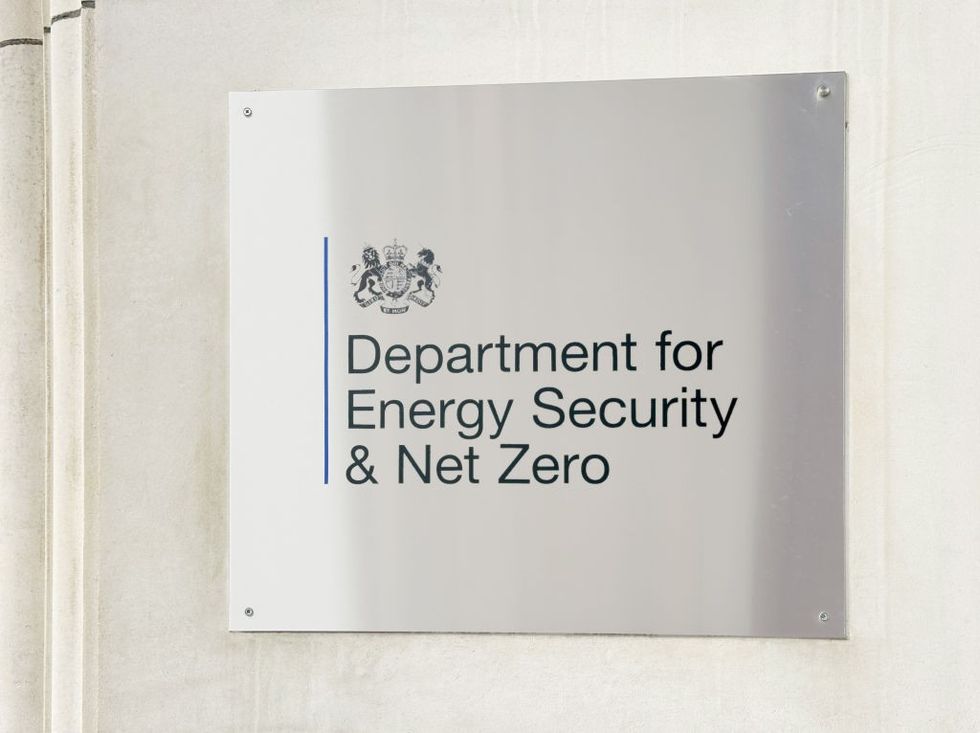
Britain and the EU are in talks to relink their carbon markets, signalling Sir Keir Starmer’s push for a deeper post-Brexit reset beyond trade
| GettyProduct Standards
The Product Regulation and Metrology Bill, currently moving through Parliament, is emerging as a key piece of post-Brexit legislation with significant implications for UK sovereignty.
It grants ministers wide-ranging powers to align British product standards with EU regulations across most consumer and industrial goods, but excludes food, aircraft, and medicines.
The bill aims to prevent regulatory divergence between Great Britain and Northern Ireland, which still follows EU rules under the Windsor Framework.
Without alignment, goods made in Great Britain could eventually be barred from entering Northern Ireland.
However, critics argue this voluntary alignment offers no real benefits: the UK would still face EU checks and have no say over the regulations being followed.
Analysts warn that the bill is being pushed through via secondary legislation, which receives limited parliamentary scrutiny.
Lord Frost and others see this as a dangerous step toward eroding UK independence, claiming it allows the EU to influence UK law indirectly through Northern Ireland.
Frost described it as a "stealth" reattachment to EU rules, warning of a slow return to Brussels’ orbit.


